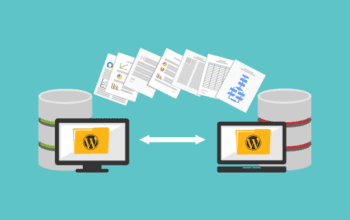Choosing the right web hosting service is a crucial decision for any business looking to establish a strong online presence. Whether you’re starting a small business website, an e-commerce platform, or a corporate blog, the quality and reliability of your hosting provider will significantly impact your website’s performance, security, and user experience. With so many hosting options available, understanding the key factors and making an informed decision can be overwhelming. This guide will walk you through everything you need to know to choose the right web hosting service for your business.
1. Understand Your Business Needs
Before diving into the different types of web hosting, it’s important to assess your business’s unique requirements. This includes understanding your goals, target audience, expected traffic, and the type of website you’re running. Here are some questions to ask yourself:
• What type of website are you building?
Are you running a blog, portfolio, e-commerce store, or a corporate site? The complexity and resource demands of your website will determine the kind of hosting you need.
• How much traffic do you anticipate?
If you’re expecting high traffic volumes right from the start, you’ll need a more robust hosting solution than if you’re just starting with a small audience.
• What is your budget?
Web hosting costs can vary greatly depending on the service level you choose. Determine how much you’re willing to invest in hosting and ensure it aligns with your business’s growth potential.
• Do you require special features?
If you need additional features such as email hosting, database support, or specific software compatibility, make sure your chosen hosting service offers these options.
2. Types of Web Hosting
There are several types of web hosting services available, each with its benefits and limitations. Understanding each type will help you choose the one that best fits your needs.
a. Shared Hosting
Shared hosting is the most affordable option, making it a popular choice for small businesses and startups. With shared hosting, multiple websites are hosted on the same server, which means resources like CPU, RAM, and bandwidth are shared among users.
• Best for: Small businesses, personal blogs, or informational websites.
• Pros: Low cost, easy to use, includes essential features (e.g., email, databases, website builders).
• Cons: Limited resources, slower performance if other sites on the same server experience high traffic, limited control over server settings.
b. Virtual Private Server (VPS) Hosting
VPS hosting offers more power and flexibility than shared hosting. While you’re still sharing a server with other websites, you’re allocated a specific portion of the server’s resources, offering greater stability and control. VPS hosting is ideal for businesses that expect moderate traffic growth and need more customization.
• Best for: Growing businesses, e-commerce sites, and medium-sized websites.
• Pros: Better performance than shared hosting, more control over server settings, scalable, good value for the cost.
• Cons: More expensive than shared hosting, requires some technical knowledge to manage.
c. Dedicated Hosting
Dedicated hosting provides you with an entire server dedicated solely to your website. This option is perfect for businesses with high traffic demands, e-commerce sites, or websites that require custom configurations and maximum control.
• Best for: Large enterprises, high-traffic websites, complex applications.
• Pros: Full control over server resources, faster website performance, enhanced security.
• Cons: Expensive, requires technical expertise for management, often more resources than most small businesses need.
d. Cloud Hosting
Cloud hosting is a flexible and scalable solution that uses multiple servers working together to host websites. It’s known for its ability to handle fluctuating traffic volumes, making it an excellent choice for businesses that expect significant growth or unpredictable traffic patterns.
• Best for: Growing businesses, websites with unpredictable traffic.
• Pros: Scalable, reliable, high uptime, pay-as-you-go pricing model.
• Cons: Can be more expensive, requires more advanced management.
e. Managed WordPress Hosting
Managed WordPress hosting is specifically designed for WordPress websites. With this service, the hosting provider manages most of the technical aspects, including software updates, security, backups, and performance optimization.
• Best for: WordPress websites, bloggers, small businesses using WordPress.
• Pros: Easy to use, automatic updates and backups, optimized for WordPress.
• Cons: Limited to WordPress websites, can be more expensive than standard shared hosting.
3. Key Features to Look for in a Web Hosting Service
When evaluating hosting providers, there are several essential features that can help ensure your website performs well and is secure. Here’s what to look for:
a. Uptime Guarantee
Uptime refers to the amount of time your website is available to users. A hosting provider should guarantee 99.9% uptime to minimize the risk of downtime, which can hurt your SEO rankings and customer trust.
b. Security Features
Security is critical for any business website. Look for hosting services that offer SSL certificates, malware scanning, firewalls, DDoS protection, and regular backups. This is especially important if you’re running an e-commerce site or handling sensitive customer data.
c. Speed and Performance
Website speed affects user experience, SEO rankings, and conversion rates. Choose a hosting provider that guarantees fast load times through features like Content Delivery Networks (CDNs), caching, and SSD storage.
d. Scalability
Your business is likely to grow over time, and your hosting should grow with it. Ensure that your hosting service offers easy scalability, allowing you to upgrade your plan as your website’s traffic and resource requirements increase.
e. Customer Support
Access to reliable and responsive customer support is crucial, especially if you encounter technical issues. Choose a provider that offers 24/7 support via phone, live chat, or email, and check online reviews to ensure the support team is helpful and knowledgeable.
4. Pricing and Value
While cost is an important consideration, it shouldn’t be the only factor in your decision-making process. Cheaper options, such as shared hosting, may be suitable for small businesses, but they can come with performance limitations. Conversely, higher-priced plans, such as dedicated hosting or managed WordPress hosting, may offer more features and better performance, but they might be overkill for a small website.
Look for a balance between cost and features. Many hosting providers offer introductory discounts, so be sure to check the renewal prices, as they can increase after the initial term.
5. Reputation and Reviews
Research the reputation of potential hosting providers by reading customer reviews and expert opinions. Look for feedback on reliability, performance, and customer service. Sites like Trustpilot, Google Reviews, and specialized forums can provide valuable insights into how a hosting provider treats its customers and handles issues.
6. Making the Final Decision
Once you’ve evaluated the different types of hosting and considered the key features that matter to your business, you’re ready to make a decision. To help you decide, make a checklist of your must-have features and compare how well each hosting provider meets those needs.
Consider starting with a more affordable option, such as shared hosting or VPS, and upgrading as your business grows. Also, choose a provider that offers easy migration options if you decide to switch hosting providers in the future.
Conclusion
Choosing the right web hosting service is an essential step in ensuring your business website’s success. By understanding your business needs, evaluating the different hosting options, and considering key features like uptime, security, scalability, and customer support, you can make an informed decision. Your hosting provider plays a significant role in your website’s performance, security, and reliability, so take your time to choose wisely. With the right hosting service, you can focus on growing your business while ensuring a smooth online experience for your customers.











